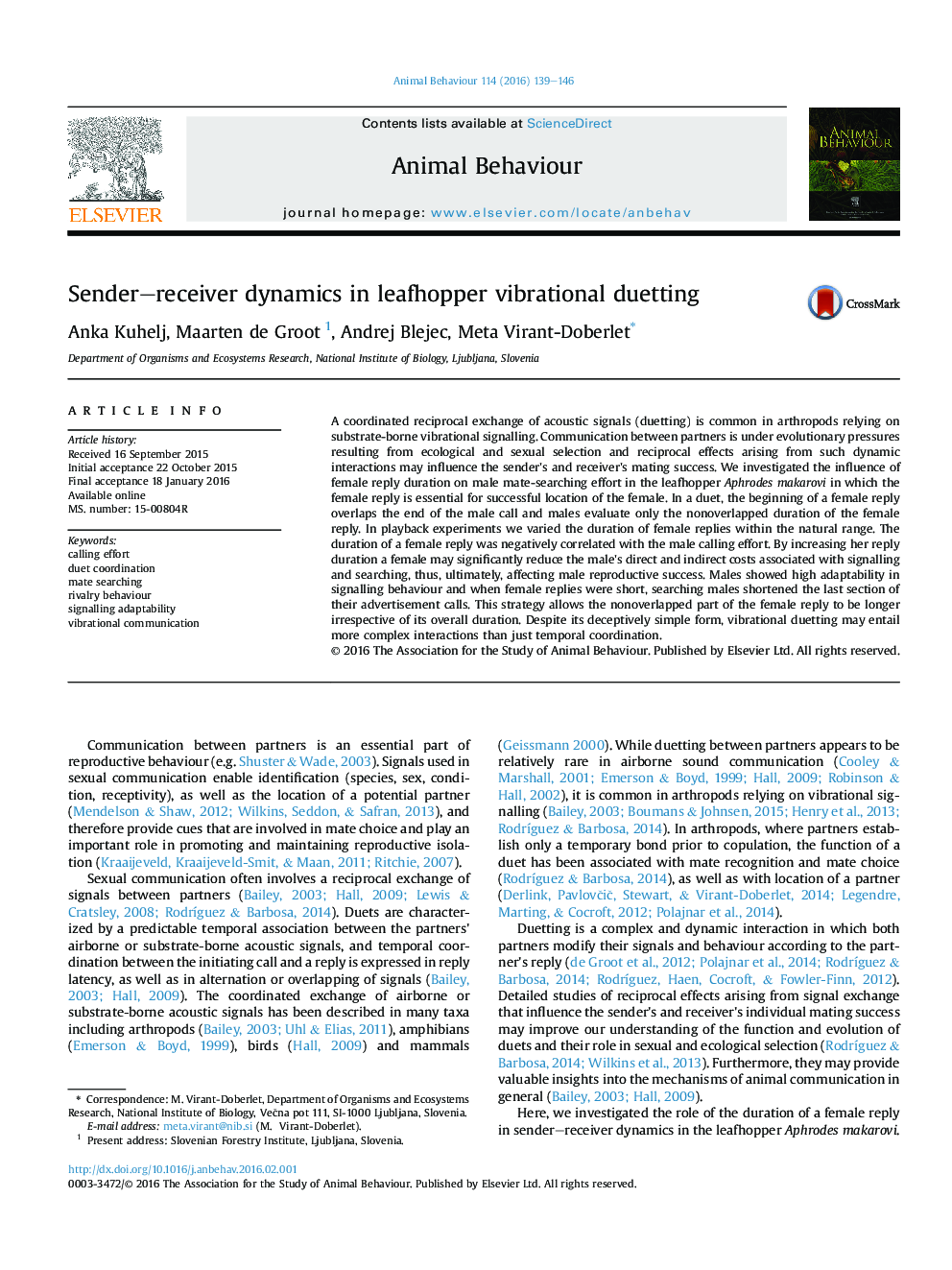| Article ID | Journal | Published Year | Pages | File Type |
|---|---|---|---|---|
| 8489188 | Animal Behaviour | 2016 | 8 Pages |
Abstract
A coordinated reciprocal exchange of acoustic signals (duetting) is common in arthropods relying on substrate-borne vibrational signalling. Communication between partners is under evolutionary pressures resulting from ecological and sexual selection and reciprocal effects arising from such dynamic interactions may influence the sender's and receiver's mating success. We investigated the influence of female reply duration on male mate-searching effort in the leafhopper Aphrodes makarovi in which the female reply is essential for successful location of the female. In a duet, the beginning of a female reply overlaps the end of the male call and males evaluate only the nonoverlapped duration of the female reply. In playback experiments we varied the duration of female replies within the natural range. The duration of a female reply was negatively correlated with the male calling effort. By increasing her reply duration a female may significantly reduce the male's direct and indirect costs associated with signalling and searching, thus, ultimately, affecting male reproductive success. Males showed high adaptability in signalling behaviour and when female replies were short, searching males shortened the last section of their advertisement calls. This strategy allows the nonoverlapped part of the female reply to be longer irrespective of its overall duration. Despite its deceptively simple form, vibrational duetting may entail more complex interactions than just temporal coordination.
Related Topics
Life Sciences
Agricultural and Biological Sciences
Animal Science and Zoology
Authors
Anka Kuhelj, Maarten de Groot, Andrej Blejec, Meta Virant-Doberlet,
